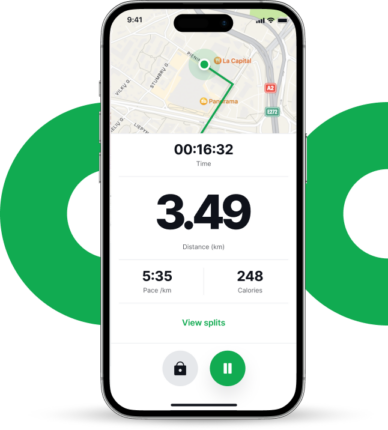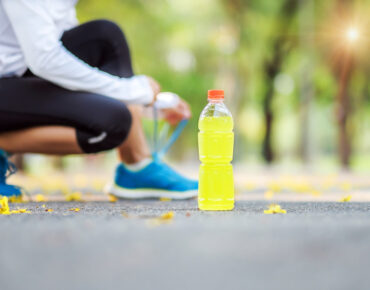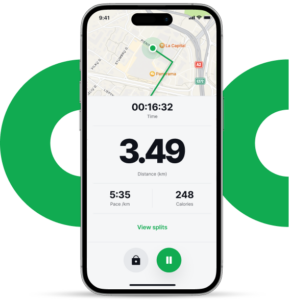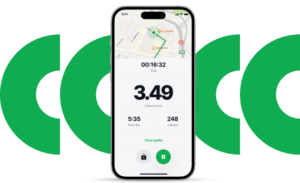62% of the population worldwide consumes a minimum of one cup of coffee every 2–3 days. Among them are the people who like to start their day with a cup of coffee. Many people consume coffee prior to running as they consider it to be a natural performance booster. They believe coffee will help them run faster and boost stamina. But how true is this?
In This Article:
Coffee Before Running: Should You Do It?
Many studies have suggested that consuming caffeine prior to physical exercises can help you in going faster and farther. It is true both with respect to sprinters and athletes. However, consuming coffee only works well when it is timed right and taken in the right amount. Just because caffeine is helpful does not mean you can consume a big mug full of it and expect extraordinary results.
Caffeine for Long-Distance Runners
Caffeine, as mentioned above, can be highly beneficial, but it is all about how you consume it. In fact, caffeine can be a great energy booster to enhance your running performance, even when you are running a long distance. However, you should be consuming the right quantity of it; otherwise, you are likely to experience the side effects of caffeine.
How Long Before a Race Should I Drink Coffee?
To reap the benefits of caffeine for runners, you need to consume it an hour prior to the start of your run. This will give you an adequate amount of time for the caffeine to hit the bloodstream. However, you should not wait too long after drinking coffee; prior to running, or else the effect will start to fade.
Researchers have shown that consuming 3–5mg of caffeine per kilogram of your body weight will give you the desired performance while running. If you weigh 247 ounces, you should consume approximately 300–400mg of caffeine.
Is Caffeine Bad for Endurance Athletes?
When understanding the effect of caffeine on runners, they wonder about its impact on endurance athletes. In fact, it can be helpful if athletes consume it in the right manner. Caffeine improves performance through the following interrelated neuromuscular effects including:
- Modifying excitation-contraction coupling
- Boosting ion mobility within muscles
- Helping with impulse transmission
- Lowering the muscle recruitment threshold
In endurance races, caffeine reduces the perception of an athlete’s efforts, thereby delaying fatigue. Additionally, it increases the level of hormone-like components in their brain, known as endorphins, during the run. The endorphins influence the mood, reducing the pain perception and creating a sense of well-being.
Caffeine also blocks the adenosine receptors found on fat cells, thereby delaying fatigue while exercising. Subsequently, caffeine boosts the degree of free fatty acids within the bloodstream. Therefore it increases the process of fat burning while running. This caffeine effect is considered the prominent mechanism that improves endurance performance.
Improving the recovery process
Caffeine may also assist in improving the recovery post-exercise. As per reports, 4 hours post-exercise, there is a 66% increase in muscle glycogen by consuming a caffeine drink. This increase in level muscle glycogen can help in speeding up the recovery process. Moreover, this can also make your next day running performance more productive. Caffeine drinks can lead to higher plasma insulin and blood glucose level.
How Should Runners Supplement With Caffeine?
When you consume coffee, you may experience lower benefits from supplements. This happens because your body develops more tolerance to caffeine.
Moreover, caffeine anhydrous is considered to have the highest level of benefits for runners, but you can consume coffee as well. It’s important to mention that caffeine supplements should not have taurine or other energy-boosting ingredients.
What Are the Side Effects of Caffeine for Runners?
The benefits of caffeine for runners are immense, but only if you consume it in the right manner. If you do overdose caffeine, then you can experience the following side effects:
- Anxiety
- Increased heart rate
- Irritability
- Sleep disruption or insomnia
- Tremors
- Dizziness
- Stomach ache
Consuming caffeine in high dosage (600mg) can increase restlessness and tremors, especially in people who have just started its consumption. Moreover, runners who are suffering from anxiety should avoid the consumption of a high dosage of caffeine.
Always make sure to drink a glass of water with each cup of coffee you consume to avoid dehydration.
The Bottom Line
Caffeine is among the most effective supplements for runners to improve their performance. A great thing about caffeine is that it is very affordable and safer to use than other supplements. According to a study, the receptors in the mouths are capable of sensing the caffeine and react accordingly. This means you may not need to consume caffeine to get the most out of it. To get the optimum benefits of caffeine for runners, they need to use it correctly and at the right time.














